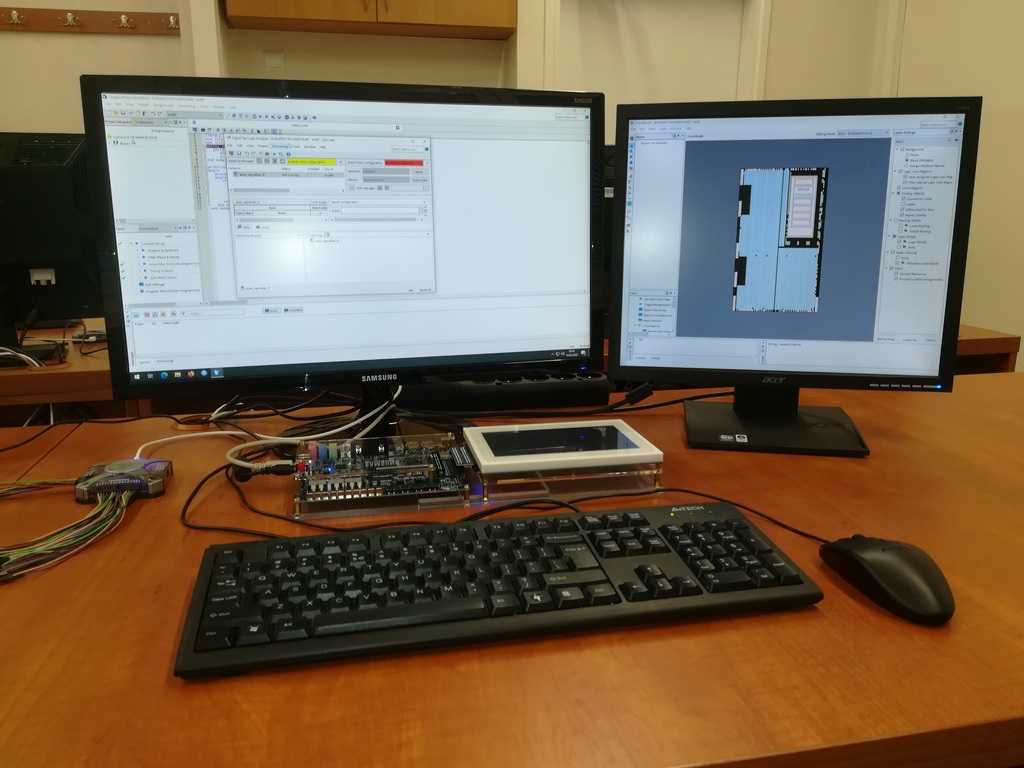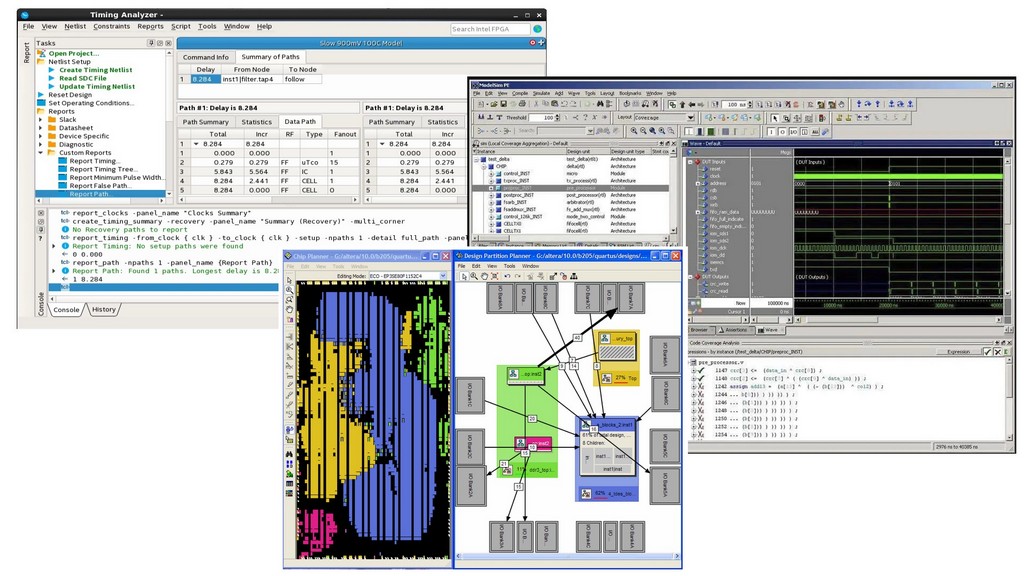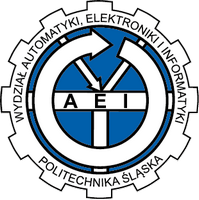Start - MGR MINF SPEC – Verification of digital systems (WSC)
Specialization: Verification of digital systems (WSC)
Microinformatics of digital systems, master degree (full-time)
Specialization characteristics
There is a growing market demand for the design of dedicated digital systems with high computational performance. This is due to the widespread computerization of many aspects of life expressed, among other things, by Industry 4.0 and also the increasing use of machine learning and artificial intelligence techniques in everyday life as well as space, satellite and telecommunications technologies (e.g., Internet of Things). The "Microinformatics of Digital Systems" study is a response to the demand that has arisen.
 The study "Microinformatics of Digital Systems" integrates and decisively expands knowledge in the areas of digital circuit and system design and verification. The specialty of Verification Systems Design includes a basic range of subjects related to design and an expanded range of subjects related to verification of digital systems.
The study "Microinformatics of Digital Systems" integrates and decisively expands knowledge in the areas of digital circuit and system design and verification. The specialty of Verification Systems Design includes a basic range of subjects related to design and an expanded range of subjects related to verification of digital systems.
Student profile
The specialization is addressed to those interested in acquiring knowledge related to contemporary dedicated digital systems with a particular focus on their verification.
Specialization courses
- Functional verification
- Hardware implementation of algorithms
- Interfaces and buses
- Test environment for Python language/Hardware emulation verification (variant course)
- Theoretical basis of logic synthesis
- UVM methodology
- High-level system modeling and design
- Computer-aided design of integrated circuits
Graduate profile
 The graduate of the studies will obtain comprehensive knowledge and skills in:
The graduate of the studies will obtain comprehensive knowledge and skills in:
- digital signal processing,
- hardware description languages, circuit and system modeling methods, hardware mapping, combinational and sequential circuit synthesis methods,
- hardware design of dedicated circuits, hardware implementation of algorithms, microprocessor design and hardware implementation of artificial neural networks,
- design of concurrent systems, task scheduling, optimization methods and synchronization of computation in hardware and software mapping,
- high-level system design,
- methods for verification of hardware systems using simulation and hardware emulation,
- functional verification methods, UVM methodology, and the use of formal verification elements in system design,
- methods and tools for designing very large scale integration (VLSI) integrated circuits.
Graduates of the studies can find jobs:
- in companies producing IP Core type intellectual value,
- in companies implementing digital hardware modules in signal and data processing, including telecommunications companies and space and satellite technology companies,
- in companies developing dedicated software for synthesis, implementation and verification of digital systems,
- in companies using digital and microprocessor technology, including in the area of Industry 4.0 and the Internet of Things.









